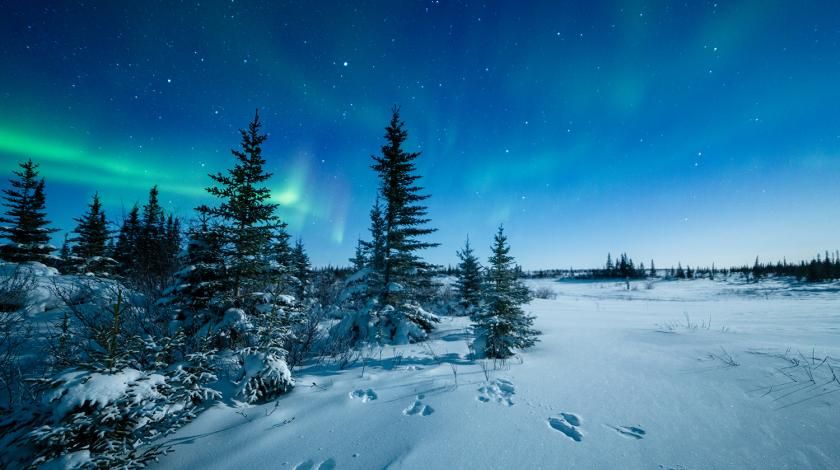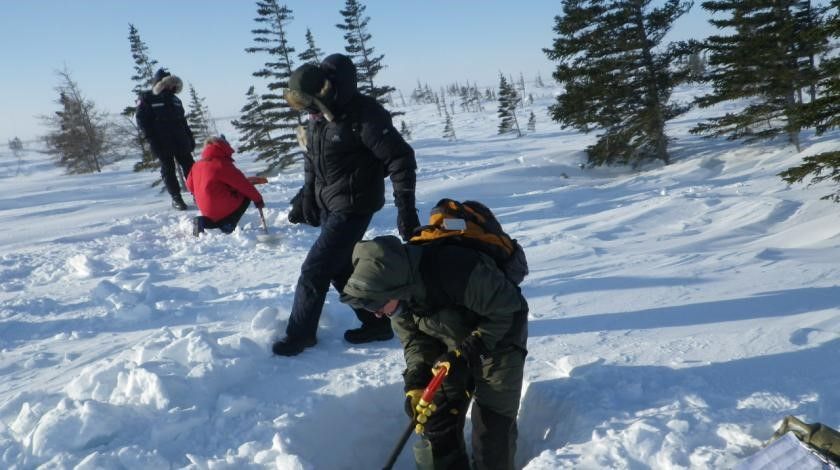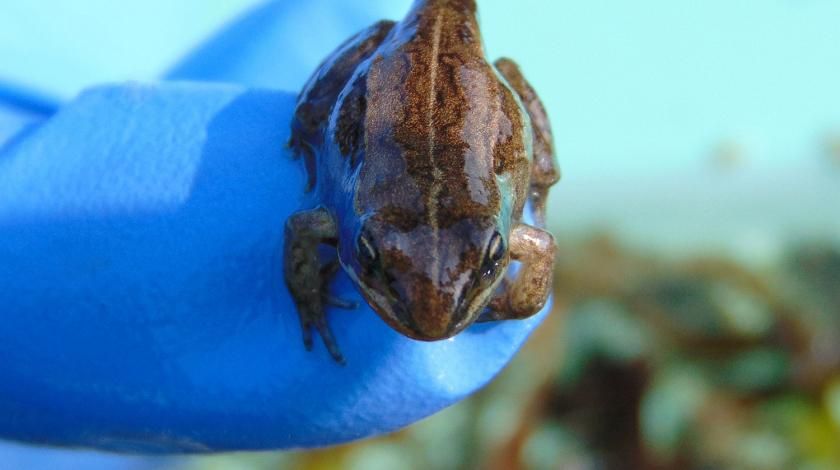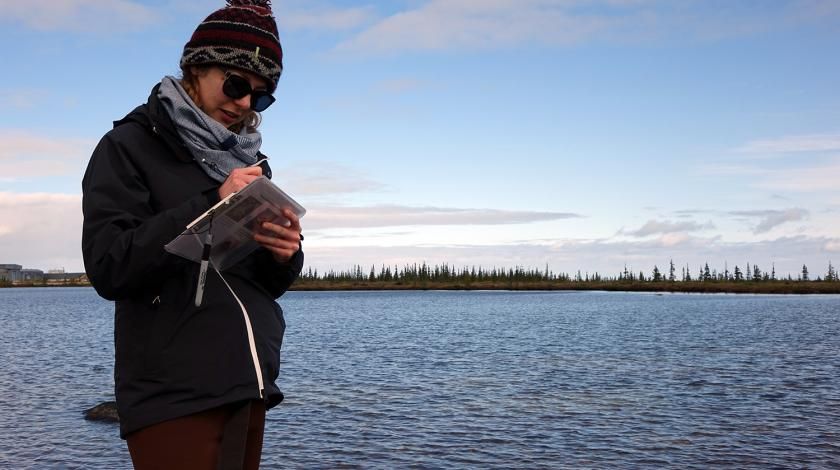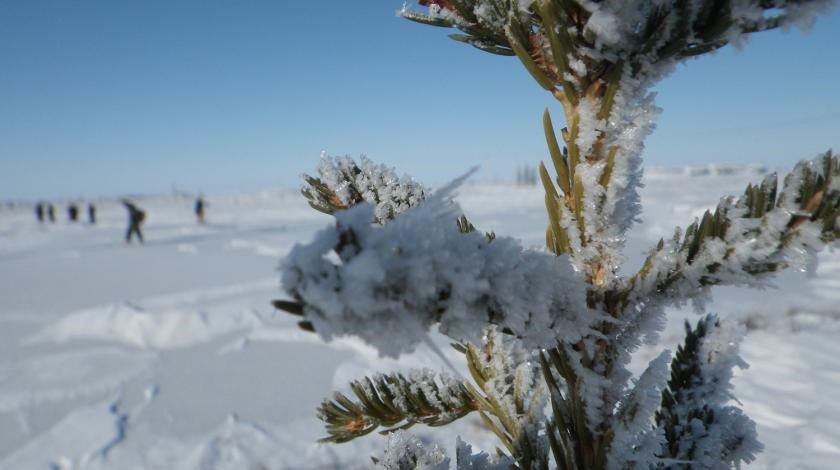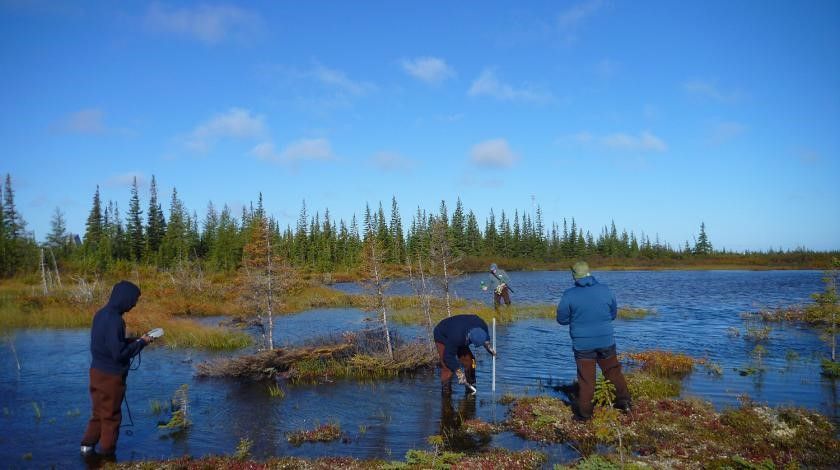Climate Change at the Arctic's Edge
Northern ecosystems are being transformed by climate change. Join this long-term monitoring effort to explore what these changes mean for the arctic—and the rest of the world.
Churchill is a small town perched on the seacoast within the Hudson Bay Lowlands, North America’s largest wetland. The area’s most famous inhabitants are its some 57,000 beluga whales and 1,000 polar bears; Churchill advertises itself as both the beluga whale and the polar bear capital of the world. However, global climate change is threatening this landscape and the wildlife that resides there. Churchill has warmed approximately two degrees Celsius since record keeping began in the 1880s, resulting in a myriad of ecological changes, such as shrinking polar sea ice, retreating glaciers, and less snowpack that melts earlier, putting Churchill on the front line of climate change.
You’ll measure evidence of global warming near Churchill, and help researchers as they learn all they can about this fragile environment. If you join one of the fall teams, you’ll help measure permafrost and monitor the health of the tree line by examining tree cores, which allow researchers to reconstruct tree life histories (to date, the oldest living tree this team has found dates from 1643).
But to truly experience the power of the North, join a winter team that focuses on assessing snowpack and taking snow samples. You’ll travel between research sites on a sled pulled by a snowmobile and may even get the chance to build an igloo.
For more information or to book contact our office (03) 9016 7590 or email
Nancy Deyo | JULY 23, 2018 ★★★★★
"Transformational Experience as a Citizen Scientist"
The Earthwatch citizen scientist experience is a once-in-a-lifetime opportunity to live and breathe the life of a scientist. You'll tromp through forests, tundras and ponds with scientists in waist high waders and full mosquito netting helping implement their critical climate change research. Lab work is equally interesting and evening lectures round out the learning to bring additional context to your daily activities. The passion, intelligence and commitment of these young scientists to wildlife and environmental conservation is inspiring and getting to know them was the best part of the experience. I came to this expedition out of a population and poverty background and knew little about climate change, but the learning from this immersion experience convinced me to figure out what I can uniquely do to help advance the cause. I would recommend this expedition to anyone looking for an adventure who wants to make a difference in the future of our planet.
Chris Deyo | JULY 23, 2018 ★★★★★
"Unique opportunity to make positive change"
Being surrounded by smart, energetic, passionate people is a unique growing opportunity that can only happen with a program like Earthwatch. We enjoyed the formal interactions in the field, lab, and classroom, as well as the informal interactions that took place during meals and evening downtime. I would highly recommend an Earthwatch expedition to anyone interested in making a positive change in the environment, in the world . . . and in themselves.
Nina Tawil | APRIL 19, 2018 ★★★★★
"Unforgettable Arctic Adventure"
I signed up to this expedition after reading about the importance of the polar regions and their significance for our planet. I wasn't sure what I was getting myself into, but I booked the trip and hoped for the best! Needless to say, this was 10 days full of inspiration, learning and a whole lot of frozen science fun. Steve, LeeAnn and the team made the experience. I'm not someone with much of a science background, and I was somewhat daunted by the prospect of being in a research centre full of PhDs and mega minds, but they somehow made science feel that much more accessible to me. Their attitudes, humour and passion were contagious. I came away feeling totally motivated and ready to tell anyone that will listen to me about the importance of the work being done and what is happening to our planet. Everything about the centre was so much more than I thought it would be! The facilities, the FOOD (be prepared for eating your body weight in cinnamon rolls) and the staff were incredible. The fact that I would happily spend hours outside in -50c conditions and that I was genuinely upset when the days ended is a testament to how amazing this trip was.
Maria Fernanda Ayala | MARCH 21, 2018 ★★★★★
"The cold never bothered me anyway"
This trip exceeded every expectation I had set for it greatly. Even though I did not have much idea what to expect, everything I imagined was belittled by a huge reality shock which only made me realise that something greater was waiting for us out there. Breathtaking views, heart-stopping auroras and long lasting friendships are only some of the incredible elements that await at the North. It's a wonderful feeling to get to share my ideas and my passion for the environment with people from all over the globe and to finally see that there are so many people out there sharing these views and just waiting to speak their minds and make things happen. There are no words that can explain what -58°C feels like, no picture can ever compare with looking straight at an aurora, you just have to get out there and experience it.
-
 Activity Level: Moderate
Activity Level: Moderate -
 Location: Churchill, Manitoba, Canada
Location: Churchill, Manitoba, Canada -
 Lead Scientist:
Lead Scientist:


